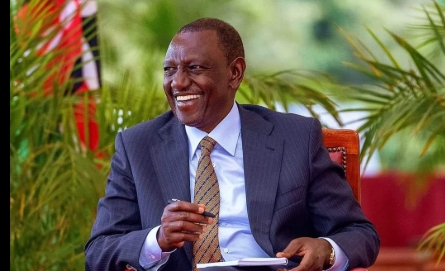- President William Ruto announced plans to tax digital creators earning from platforms like TikTok, Facebook, and YouTube.
- The government has proposed the Tax Laws (Amendment) Bill, 2024, which would include digital operators in the tax net.
- Ruto emphasized fairness, stating that all earners should contribute to taxes.
President William Ruto has revealed that the government plans to introduce taxes for digital content creators in Kenya. This move follows a deal earlier this year that allowed creators to monetize their content on platforms like TikTok, Facebook, and YouTube. Speaking at the Kenya Private Sector Alliance (KEPSA) 20th anniversary celebrations, Ruto explained that those who earn from these platforms should contribute to taxes.
The Proposal
The government’s proposal, known as the Tax Laws (Amendment) Bill, 2024, aims to bring digital operators, such as social media platforms, into the tax net. The bill is set to undergo a Second Reading in Parliament after public participation. If passed, it will affect creators who earn income from digital platforms like YouTube, TikTok, and Facebook.
President Ruto defended the move by stating that it was a matter of fairness, given that people who earn as little as Ksh.20,000 or Ksh.30,000 are already paying taxes. He questioned, “If someone earning Ksh.1 million should not contribute something to the tax kitty, especially when the government has enabled them to achieve that?”
The Role of Monetization
Earlier this year, the government signed agreements with major companies like Google, META, and TikTok, enabling Kenyan creators to monetize their content. These platforms are now more accessible for local creators to earn money. Ruto highlighted that Kenya was one of only four countries where creators can monetize their accounts, making it a key hub for digital content creators.
However, there has been some confusion. While Ruto’s statement about Kenya being one of four countries with monetization opportunities is notable, YouTube’s monetization policies list 12 African countries, including Kenya, eligible for monetization. This list also includes nations like Nigeria, South Africa, Uganda, and Egypt.
The Debate Over Taxation
While Ruto argues that taxing high-earning digital creators will create fairness by leveling the playing field, some creators are concerned that this could hinder their growth. They fear that imposing taxes might discourage them from creating content or deter newcomers from entering the industry.
The proposal to tax digital creators has sparked debate. While it aims to create fairness and ensure that everyone contributing to the economy pays their due share, content creators are wary of the potential impact on their income and growth. As the Tax Laws (Amendment) Bill moves closer to Parliament, the conversation around digital content creation, taxation, and growth will likely continue to evolve.







